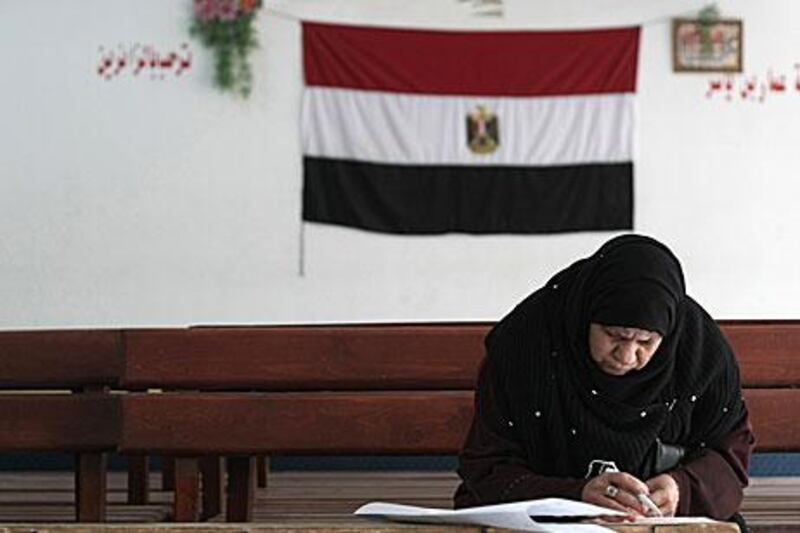There was determination, grit and defiance.
The Egyptians who cast their ballots on Monday and yesterday in far larger than expected numbers were not celebrating as you would expect from a people who have just shrugged off years of political apathy.
They were weighed down by decades of dictatorship and worries about a worsening economy and surging crime as well as being unsettled by the uncertainty engulfing their troubled nation.
With patience and suppressed anger in some cases, they waited in lines for up to seven hours to cast their ballots. Nothing, many said, would stop them from embracing the opportunity to make a difference, at last.
But beyond the turnout forecasts and the symbolic significance of the vote, the outcome of the election for parliament's lower chamber, the People's Assembly, could alter the political landscape of post-Mubarak Egypt.
Each of the three main players - the military, the Islamists and the liberals - is taking away something different. The turnout, for example, is highly significant.
A low turnout, widely agreed to be anything below 30 per cent, would lend a boost to the mostly liberal activists behind Mr Mubarak's departure and last week's deadly protests. These groups and their supporters have not boycotted the vote, but they have privately wished it to be flawed to bolster their argument that an election under the military could not be credible.
By the same token, a low turnout would hurt the military, whose leaders have urged people to take part. With less than 30 per cent of registered voters casting ballots, the first but most crucial step of the military's road map would be tainted, casting doubt on the next steps of drafting a new constitution and electing a president.
A low turnout could also bolster the chances of the Islamists, particularly the Muslim Brotherhood, of dominating the legislature because their highly disciplined core supporters never fail to vote.
The fallout from a respectable turnout in a fair and free election would be just as mixed for the main players.
For the generals, who have deployed thousands of troops to protect polling centres, it would restore their prestige and strengthen their credibility in the face of criticism by the youth groups accusing them, among other things, of being an extension of the Mubarak regime and calling on them to immediately step down. A successful and credible vote would also support the generals’ own argument that the protesters in Tahrir Square are irresponsible and naive.
The Brotherhood and its allies could be hurt by a large turnout involving what many Egyptians refer to as the “silent majority”, a large but not politically active segment of the population that supports a separation of religion and politics, stability and a positive economic climate.
The elections, which are staggered over three stages that will end in January, are being held when the Islamists and the activist groups are at sharp odds. The Islamists boycotted the protests last week, hoping that by doing so they would not derail the elections they are likely to dominate. The boycott has prompted many to accuse the group of political opportunism and a thirst for power.
But the Brotherhood will have another battle on its hands if the generals decide to go ahead with limiting the powers of the next parliament, retaining for themselves the right to form governments, dismiss them and have the final say on the selection of a 100-member panel to draft the next constitution. These were tasks that everyone had thought would belong to elected legislators.
That the parliament to emerge from the elections will have limited power is perhaps the biggest irony of the vote. Also, no one knows for certain how long the 498-seat legislature will sit since it will be followed by the drafting of a new constitution. The elections are taking place at a time of sharp political polarisation, with all three major players at odds.
The generals have stepped up their choreographed attacks against the protesters, maintaining in a flurry of news conferences and television appearances that Tahrir Square did not represent the whole of Egypt. The Brotherhood, on the other hand, has distanced itself from Tahrir Square, arguing that it stayed away from the protests because it learnt of a “plot” to lure it into a bloody confrontation.
foreign.desk@thenational.ae





